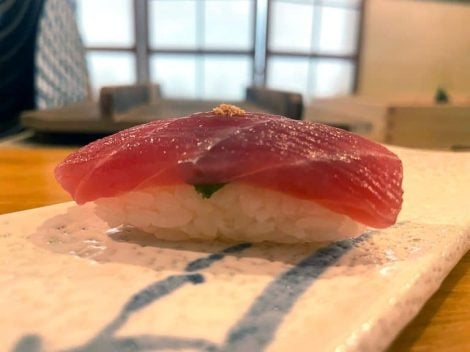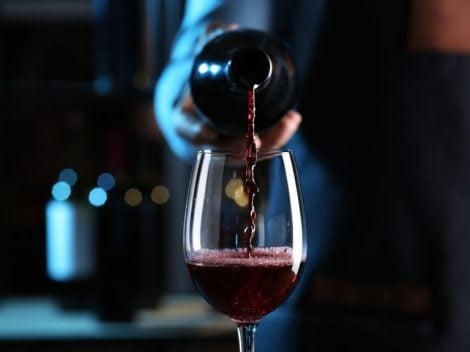It's called Coro, and it's a name that hides several meanings. The first refers to the choir of the church that houses the restaurant, the second refers to the ensemble of voices that make up the project, the third combines the names of the two owners and managers: Francesco and Ronald, Perali and Bukri, someone may remember them from Osticcio in Montalcino, one in the dining room and the other in the kitchen. Closed with that project, the two continue a common path, this time in Orvieto, Perali's city. A restaurant that fits into the great growth of Umbrian cuisine.

Francesco Perali
Called to manage the catering offer of Palazzo Patrvs, a new boutique hotel with 9 rooms in the historic center, they started with very well-curated breakfasts - the reference is the Romito style but also that of Lopriore in the days of La Certosa - and from the bistro and cocktail bar Gocce that share the spaces, before launching the gourmet restaurant of which they also have full management. A space that fits into the structure adjacent to the hotel, the deconsecrated church with high ceilings - about 12 meters high - renovated by Giuliano dell'Uva together with the owner, Raffaele Tysserand.
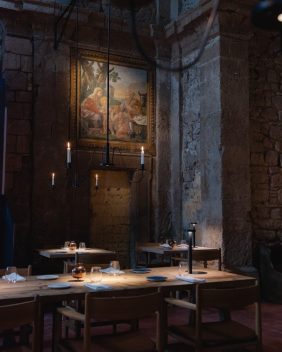
Coro in Orvieto
About thirty covers, with a private room for a maximum of 8 people in the vertical cellar, Coro has been open for just over two months. Time to break in the machines and prepare for the spring season and the tourists it brings. The cuisine is the one that Ronald Bukri matured at the court of the greats and then developed at Osticcio. Personal, with a strong Italian imprint but not confined to the boundaries of classic and traditional cuisine, after all, his experiences speak for themselves: Paolo Lopriore, Guillaume in Sydney, Sketch by Pierre Gagnaire in London, and then Atman with Igles Corelli and Inkiostro with Terry Giacomello.
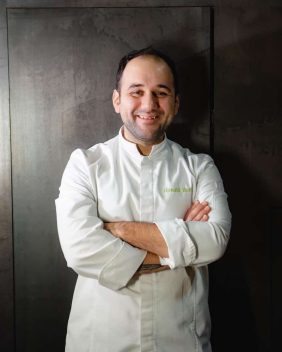
If you ask him for a reference, he says: "I recognize myself a lot in Lopriore's cuisine, it was the maximum to work with him, but I also like a more comforting part, a cuisine that I feel very Italian. A bit like those who have passed through Marchesi: they have known French cuisine but have a very Italian taste." He talks about reference points like Riccardo Camanini or Niko Romito, and then adds: "But I put Crippa at the top, I don't hide that he inspires me a lot, he represents what I like: vegetables, Japanese and French techniques, a very Italian taste." The vegetable world inspires him and so do the acidic notes given by citrus fruits. They are pillars of a cuisine that finds great relief in Coro in the grill designed by him - simple but functional, he says - that allows him to range with flavors and multiply the dishes on the menu by adding a step with smoke and flames, as in the case of linguine with lentil extract served also plain.
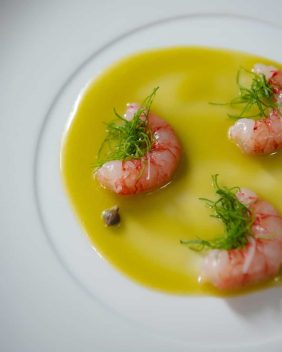
What to eat at Coro
Three blind tasting menus (Coro Ardente, 4 grilled dishes at €72, Coro Armonico, 6 dishes at €88, Coro Libero 10 dishes at €110) with two specials that can be added to the menus, in the manner of Camanini with pasta in bladder (the Spaghetti, Parmesan, green lemon, paprika and the Gambero Rosso, oil, lemon, and honey, now chef's signatures), and a contained menu, with 3 or 4 proposals each course and maximum availability to respond to customer requests. All to give a free enjoyment, which does not obligate to long paths but also welcomes those who seek, in the restaurant, "only" a moment of leisure without the commitment of a full tasting - "in the end catering must also be a service - says Bukri - all the more so if you also work with hotel guests who do not necessarily have to endure all my thought. And then - he adds - I'm not Crippa."
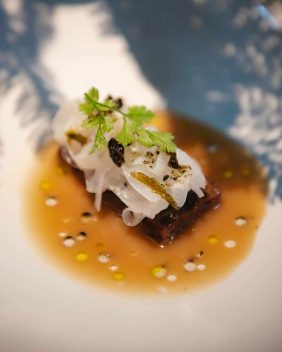
Among the dishes there are things like artichoke with foie gras which in the coming weeks will be replaced with another artichoke cooked first in oil and then finished on the grill, served with an extraction of stem and leaves, partly reduced like a caramel, partly transformed into a bitter cream in which there is a reference to Lopriore - "but I'm not Lopriore, I like the bitter part, but I also like a more comfortable one" - balanced by a sweet cream of blanched garlic cooked in milk and parsley chlorophyll: a play between secondary flavors and more challenging aspects of artichoke, like licorice, and familiar pairings like garlic and parsley. Then there is the grilled squid with sheep's belly and seaweed: sheep is a typical meat in Umbria "I thought from the beginning to put it", the squid makes the sheep meat more elegant, marinated in saltwater and sugar for 24 hours and then cooked for 36 hours, grilled and thinly sliced, finally covered with squid tagliatelle, "I really like it, it's a dish that I will put back."
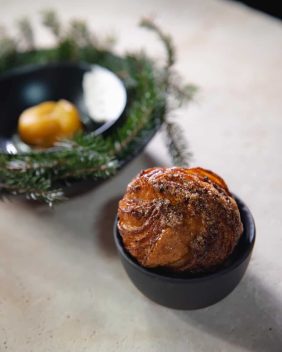
The grill goes for everything, even for desserts, as in the case of sfogliata, a kind of rose cake with a mix of dried and smoked citrus fruits for a night on the grill, accompanied by apples cooked in maple syrup and apple, homemade kefir cream. With him in the kitchen are sous chef Cosimo Branca (experiences at Atman, and at the Gambero Rosso Academy) and pastry chef Francesca Tomei. In the dining room with Perali is sommelier Valentina De Angelis and on weekends some extra coming from Intrecci, the Cotarella's sister's room school. With them, there are also shared projects, such as the dinner with Gaetano Trovato on March 21st.
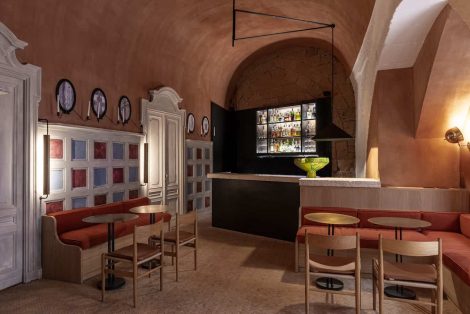
Cocktail bar and bistro
Started Coro Bukri will return to the other spaces: the Gocce cocktail bar (which in ancient Orvieto is an exclamation that stands for: nice), which is highly focused on, a laboratory for experimenting with cooking before the restaurant opened, now in the process of consolidation. Behind the counter is Domenico Sciacca, known in Cortona, who is defining a seasonal drink list in open dialogue with the kitchen, for the use of techniques such as extraction, cryofiltration fermentations, just think of the Cucumbers, Dirty Martini with cucumber brine made by Coro, or the Raboso, a twist on the Negroni made with rhubarb rhizome. "When we opened, we had a dozen snacks, small but very well cared for, for example with smoked sheep tartare with katsuobushi. It was going great, we prepared from 50 to 70 in the evening, sometimes even more, but my heart beats for the restaurant." A fine job that would require the hand of a cook. For now, that list has been reduced, but who knows if in the future it will return to travel extensively too.
For the summer, the reopening of the bistro is also preparing, after the opening in the Christmas period where there was a proposal of international breath with local products, a kind of bistro in Umbrian sauce that aimed to bring haute cuisine to people in a simpler and more immediate form. A step that completes the proposal of Palazzo Petrvs which, we are sure, will enter the coordinates of enthusiasts.
Coro - Palazzo Petrvs - Orvieto (TR) - Via dei Gualtieri 1 - +39 0763 967 231 - https://cororistorante.it
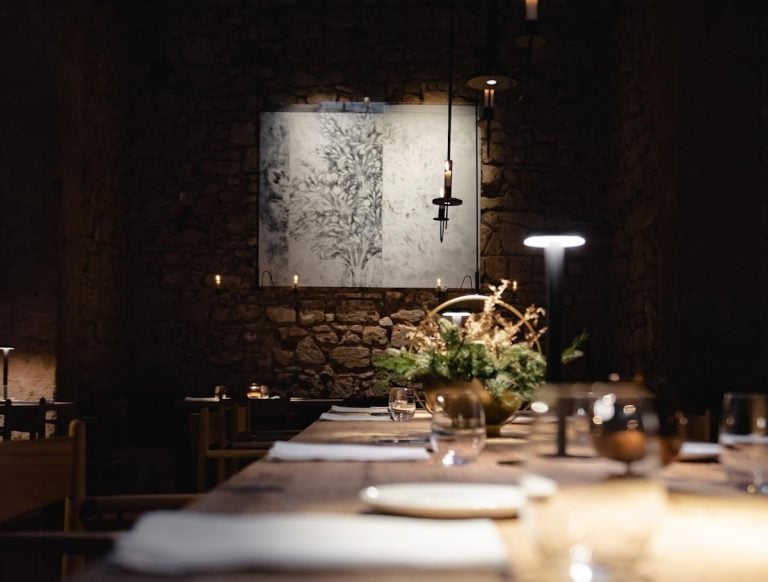
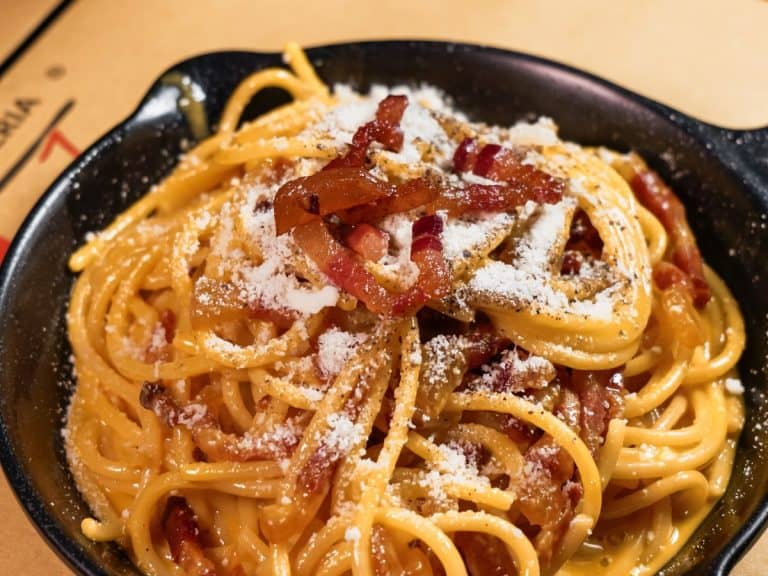 Where to eat in Ariccia. The best addresses selected by Gambero Rosso
Where to eat in Ariccia. The best addresses selected by Gambero Rosso The 'electric tomino', the unknown specialty of Piedmontese taverns. What it is and where to eat it in Turin
The 'electric tomino', the unknown specialty of Piedmontese taverns. What it is and where to eat it in Turin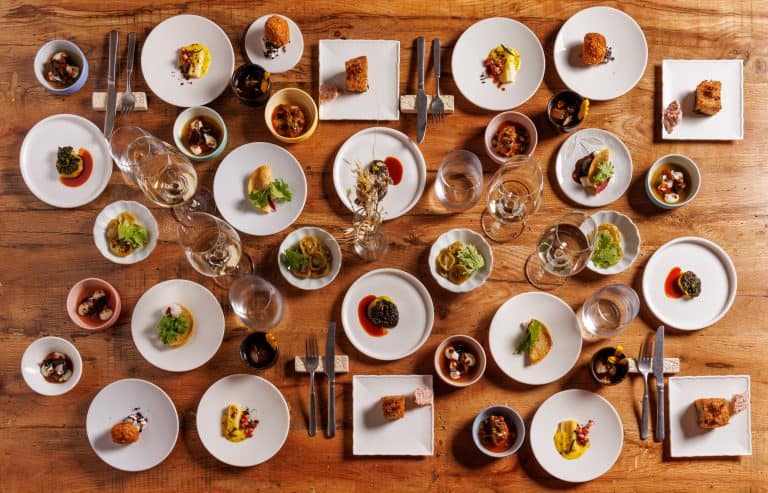 To be shared and enjoyed together. The return of Italian appetizers that have conquered Michelin-starred chefs
To be shared and enjoyed together. The return of Italian appetizers that have conquered Michelin-starred chefs The 8 best Vitovska Wines from Friuli Venezia Giulia selected by Gambero Rosso
The 8 best Vitovska Wines from Friuli Venezia Giulia selected by Gambero Rosso History of the hidden specialty coffee shop in an agricultural market in Rieti
History of the hidden specialty coffee shop in an agricultural market in Rieti

